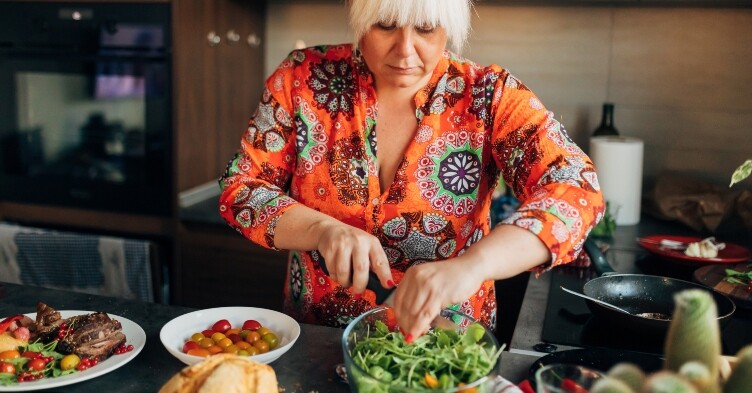We need one million people in England to give blood

With only around three days’ stock of blood available at any one time, we still need many more blood donors, argues Dee Thiruchelvam of NHS Blood and Transplant
I made a moving discovery about my own blood recently. After donating, my blood was marked with a ‘Neo’ tag.
It turns out that I’m one of the select donors whose blood can be given to neonates, because it’s free from some antibodies and also cytomegalovirus. These can be harmful to newborns because their immune system is not fully developed.
Every donation is priceless but knowing it can help the tiniest and most vulnerable patients makes it feel even more worthwhile.
I’m one of about 800,000 blood donors in England and I’m also the Chief Nurse for NHS Blood and Transplant.
Related Article: We need one million people in England to give blood
I see our blood stock figures every day. I know just how difficult the situation has been for a long time now. We’ve been in Amber Alert – around three days of stocks only – since last year, and there is now a pressing need to avoid a Red Alert.
There have been shorter term pressures, such as last year’s cyber-attack that made it harder for hospitals to match blood and increased demand for the universal donor O negative blood. The clinical community has been doing a great job managing stocks and making donations themselves, which has eased some pressure.
But longer term, we really need more donors. Only around 2% of the population currently give blood. This National Blood Week, we’ve appealed for one million people to give blood, to secure supplies for the future.
The strength of any healthcare system is directly tied to the strength of its nursing workforce. But the role of nurses in GP practices, primary care, community and social teams, in helping secure blood supplies is often overlooked.
First, you can, of course, donate
Most people can. As long as you’re aged 17 or older and in good health, you can probably donate.
Giving blood is easy. You need to register online or via our app and then make an appointment and then the whole visit takes about an hour, with the donation itself taking only 5-10 minutes. Men can donate every 12 weeks and women every 16 weeks, due to lower iron levels.
We have 50 mobile blood donation teams who go out to community venues such as church halls. But we especially need donors at our 27 permanent donor centres in towns and cities. We especially need black heritage donors and younger donors.
Second, you can be an advocate for blood donation
The people and families you work with will often be looking for ways to give back – blood donation is a practical and personal way to do it.
Related Article: NICE recommends better support for weight-loss patients after treatment
You will have first-hand experience of the life-saving power of blood transfusions. Many people who come through the doors of a community health centre will have received blood. It’s not all car crashes. Most blood goes for illnesses which are with people for the longer term – such as blood cancers, sickle cell, gastrointestinal complications, anaemia, liver and kidney failure.
Third, you can help patients make informed decisions about blood transfusions
Every transfusion carries some risks, and today, we have more knowledge about when blood is truly needed and what alternatives might be available.
Our Patient Blood Management teams provide guidance on options like pre-operative iron supplements, which can reduce the need for transfusion, or the use of tranexamic acid to help manage bleeding.
As nurses, we are often the closest point of contact for patients and their families. Supporting informed consent is a vital part of our role – ensuring people understand their options and feel confident in their choices. While hospital teams handle formal consent, community-based conversations about transfusion alternatives can help patients develop a deeper understanding of their care.
Nursing is one of the largest professions in the country and we are a donor base ourselves.
Donation can be good fun. I love spending time with our donation nursing teams. The centres felt alive with purpose and hope. So, a call out to my peers: if you’ve ever given blood, thank you. If you haven’t, please think about doing so. And please keep advocating for blood donation and please keep educating about blood transfusion.
Related Article: NHS Active 10 app encourages increase in walking activity
And my last donation? Thanks to the text messages we all get afterwards, I know my recent donation went to the Epsom and St Helier University Hospitals NHS Trust, a few days ago just before National Blood Week. There’s no greater feeling.
To find out more, register or book your own appointment, visit: blood.co.uk or download the NHS Give Blood app.
Dee Thiruchelvam is chief nursing officer, NHS Blood and Transplant

See how our symptom tool can help you make better sense of patient presentations
Click here to search a symptom




![Menopause: identification and management [NG23]](https://s3-eu-west-2.amazonaws.com/images.nursinginpractice.com/wp-media-folder-nursing-in-practice/wp-content/uploads/2025/03/PULSE-NIP-UPLOAD-BAYER-NICE-MENOPAUSE-A5-HANDBOOK.jpg)
